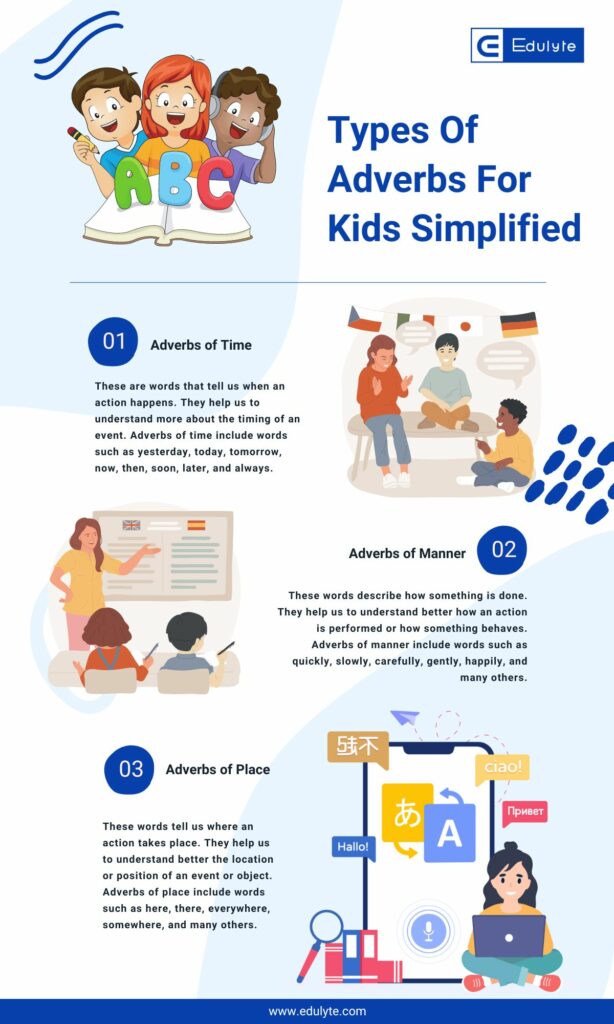
Simple Future Tense
Phonetics:
sɪmpl
fjuːtʃə(r)
tens
Pronunciation:
Futuristic Flair: Unraveling the Simple Future Tense
Comprehensive Definition, Description, Examples & Rules
A future tense is a form of the verb in which you describe a situation that has not happened and is going to happen in the future. It is a particular dialectic situation that does not exist. A compulsory word while writing a future tense sentence is ‘will’.
Overview of different types of future tenses
There are four types of future tenses. These are:
Simple future tense
The definition of simple future tense is a type of verb tense that will help you to talk about a thing that has not happened. You can talk about a situation in this tense that will begin soon.
Future perfect tense
The future perfect tense defines an action that will be completed at some point In the future. A compulsory rule for a future perfect tense is to use ‘will have’.
Future continuous tense
A future continuous tense indicates a situation or any event that is progressing at a certain point in the future. The rule for this tense is to use ‘will’ and ‘ing’ with the finite verb.
Future perfect continuous tense
A future perfect continuous tense is an event that started in the past and will be completed in the future or is progressing in the future. The rule is to use ‘will have been’ with ‘ing’ at the verb.
The Importance of future tenses are:
- It helps in expressing actions of the future.
- You can predict any future activities.
- You can express texts of uncertainty.
Understanding Simple Future Tense
The simple future tense is a type of tense that will help you to talk about a situation that has yet to happen. It is an action that will occur in the future. The characteristics of a simple future tense are to predict a future event or to express the willingness of something.
A rule to write this type of tense is to use ‘will’ or ‘shall’ and add it to the base verb of the sentence.
A basic difference between shall and will is that you should use ‘shall’ in the case of first-person pronouns. On the other hand, you should use ‘will’ for the second and third pronoun forms.
Using "Will" and "Shall" Correctly
While writing a simple future tense, you must clarify the ‘will’ and ‘shall’ usage. As mentioned in the blog previously, the ultimate difference you should understand is that ‘shall’ goes with the first-person pronoun forms. While ‘will’ is specially used with the second and third-person forms. Examples of both these are:
- I shall be early today.
- They will be late to class.
Simple Future Tense in Action
The primary use of a simple future tense is to express when you want to predict something about the future. You can express a future plan using a simple future tense, and can also talk about an intention for the future. You will use future tense to describe all these situations, especially the simple future tense.
Examples of the simple future tense in everyday conversation are:
- Where will you go today?
- What will Max eat now?
- I will give an excellent speech.
- Michael will dance in the program.
Forming Negative Sentences
Negative sentences are a type of sentence that consists of the word ‘not’ in it. It is typically to define something that you don’t want. You can write a simple future tense in a negative manner for which you need to add the word ‘not’ after ‘will’ or ‘shall’ in the sentence. It may be tricky to write negative sentences, but following the basic structure will help you to form them correctly. Examples of negative future tense are:
- I shall not play tomorrow.
- He will not attend the meeting.
- The teacher will not tolerate this behaviour.
- It will not be a rainy day tomorrow.
Asking questions in the Simple Future Tense
You can ask questions by forming an interrogative sentence that typically consists of the ‘WH’ words. In the case of the simple future tense, you can avoid using the ‘WH’ words at times because you can ask a question by starting the sentence with ‘will’. Examples of asking questions by using the simple future tense are:
- What will be the line-up for the game?
- Will you go tomorrow?
- What will you cook for dinner?
- When will the meeting start?
Simple Future Tense vs. Other Future Tenses
There is a basic difference between the simple future tense and the order future tenses, such as the future continuous tense and future perfect tense. The simple future tense is something that will only define an action that is going to happen in the future. The future continuous tense will directly define an action that will happen in the future and will continue for some time in the future. You are to use the future perfect tense to define an action that will be completed.
You need to understand that there are specific contexts when using a future tense. If you want to define an action that will happen in the future, then using the simple future tense is appropriate. It will be perfect to use the future continuous tense to define an event that is progressing in the future. While it will be appropriate to use the future perfect tense to define any event that will finish in the future.
Common Mistakes and Tips
There may be specific common errors that you commit while using the simple future tense. These are:
Using ‘will’ or ‘shall’ incorrectly
One of the most common mistakes people commit while writing in the simple future tense is the usage of ‘will’ or ‘shall’. You need to understand that you are to use ‘will’ for second and third-form pronouns. You have to use ‘shall’ for first-form pronouns. Avoiding this mistake will be positive for you to write appropriate simple future tense sentences.
Subject-verb agreement
You need to maintain a proper subject-verb agreement during a future tense. If you use the wrong subject and verb agreement, then it will mess up your entire sentence. If you use the singular subject with a plural verb, your sentence will be wrong. You must use the singular subject with a singular verb and vice versa to write your sentence perfectly.
Specific tips to avoid mistakes:
- Understand the base form of the word and use ‘will’ or ‘shall’ appropriately.
- Specify what you want to see in the future, making it easy to write the sentence.
- Avoid the common mistakes that are mentioned in the article above.

Transform Your English Skills
Free sign-up for a personalised dashboard, learning tools, and unlimited possibilities!
Sign up Now
Key Takeaways
- You must use ‘shall’ and ‘will’ according to their requirements.
- You can write simple future tense interrogative sentences.
- Make sure to keep the subject-verb agreement.
- You can use modal verbs to write simple future tense.
Quiz
Question comes here
Frequently Asked Questions
There is a basic difference between ‘will’ and ‘going to’ while writing a future tense. If you want to predict the future but have a specific uncertainty with it, then you should use ‘will’. If you are sure about a specific event in the future and it will happen, then you should use ‘going to’. Examples are:
- Will you come to school tomorrow?
- The teacher is going to take the test tomorrow.
There is a proper rule that you need to follow while writing negative sentences for the simple future tense. Generally, you write a negative future tense with ‘not’. In your simple future tense, you must add it after ‘will’ or ‘shall’. The negative simple future tense example is:
- Sachin will not play anymore.
You can write interrogative sentences with ‘WH words or start the sentence with ‘will’. Both these situations will help you find a way to ask questions. The interrogative simple future tense example is:
- What will you wear to the party?
Yes, there are three other ways in which you can express the future. The three different tenses that you can use are:
- Future perfect tense
- Future perfect continuous tense
- Future progressive tense
Yes, you can use the model words like ‘mayor ‘can’ to express any future situation through the simple future tense. These types of words are used to describe something possible, which is appropriate while writing this tense.
You need to avoid specific mistakes while writing the simple future tense. These include:
- Messing up the usage of ‘will’ or ‘shall’.
- Not following the subject-verb agreement.
- Using the wrong clauses in the sentence






